MPUMALANGA GAS DISCOVERY
Kinetiko Energy’s plan just the beginning of exploitation of SA’s gas reserves
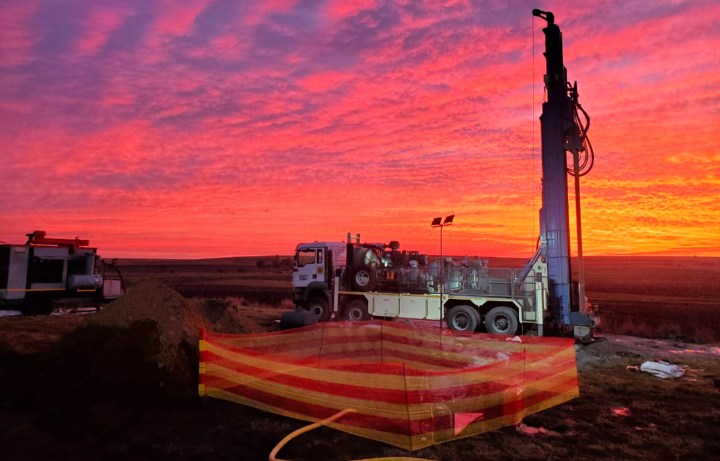
The call for an end to fossil fuels continues to fall on deaf ears, with a recently announced gas discovery near Secunda in Mpumalanga and plans to develop what will be South Africa’s largest onshore liquefied natural gas project.
Nick de Blocq, CEO of Australian gas explorer Kinetiko Energy, sat down with Daily Maverick for an interview about the recently announced discovery of gas reserves near Secunda in Mpumalanga and their joint venture with the Industrial Development Corporation (IDC) to develop the “Korhaan” gas project.
Named after one of the endemic bird species found in the area, the Korhaan gas project is expected to produce 50MW in its first stage and 500MW in its second stage – equating to half a stage of load shedding – through the abstraction of over two trillion cubic feet in gas reserves.
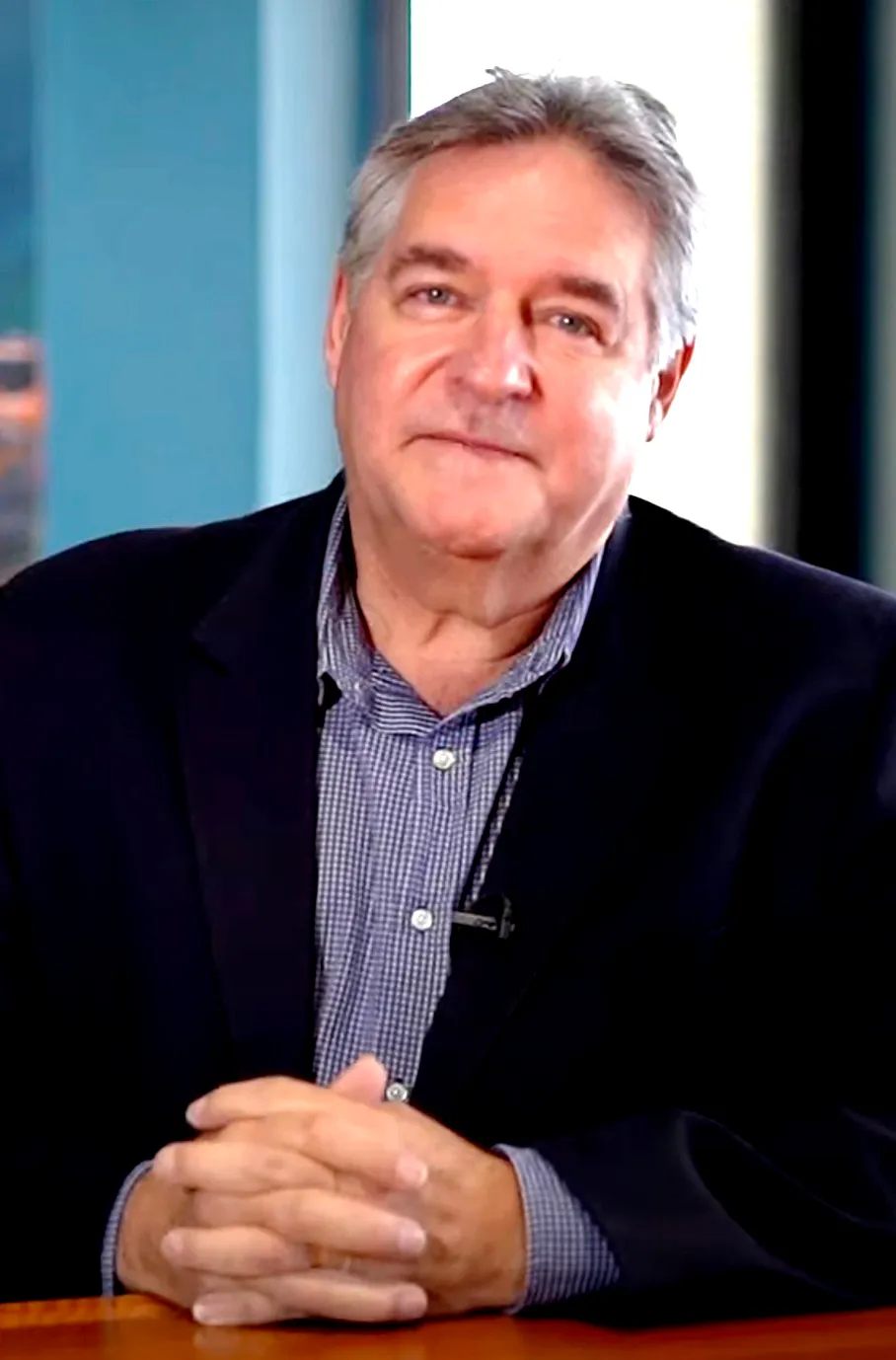
Nick de Blocq, CEO of Kinetiko Energy. (Photo: Kinetiko)
In a statement last month, the Department of Mineral Resources and Energy (DMRE) welcomed Kinetiko’s discovery.
This was again stated at the Southern Africa Oil and Gas Conference last week, where the development of gas was touted as a “necessary resource” for renewable energy to thrive.
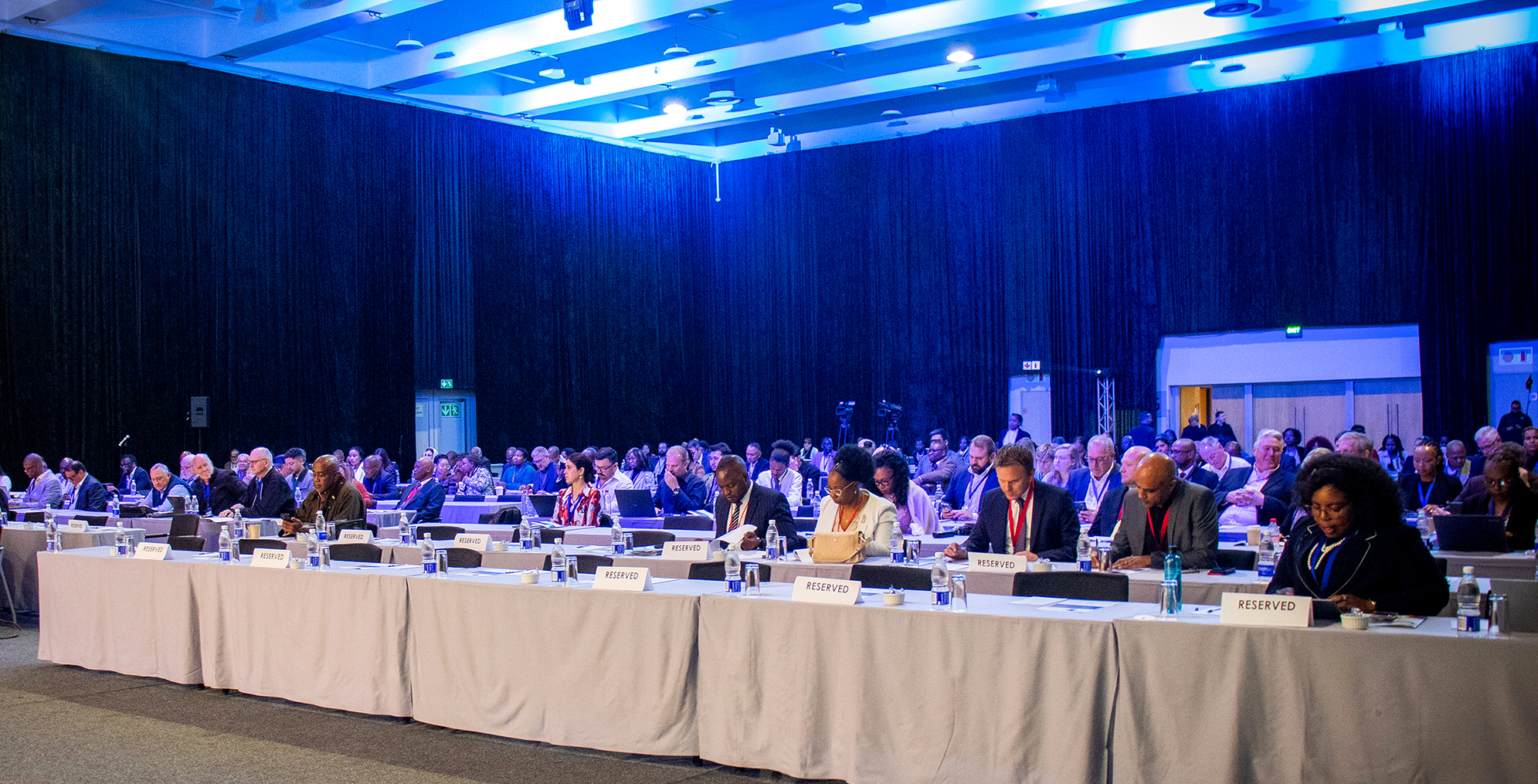
Oil and gas sector stakeholders at the Southern Africa Oil and Gas Development Conference in Cape Town, 13 September 2023. (Photo: Ziyanda Duba)
The key sentiment at the conference was that gas in South Africa was underutilised and that it would play a “critical role” in overcoming the region’s energy challenges while ensuring a just energy transition.
DMRE deputy minister Dr Nobuhle Nkabane said, “The recent discovery of natural gas in Mpumalanga Province is a major boost in electricity generation capacity as the country was looking at different sources of energy.”
This is despite various commitments to reducing fossil fuel usage and reports to inform policy-makers, investors and companies that the development of any new oil and gas fields is not aligned with limiting warming to 1.5°C and achieving the goals of the Paris Agreement.
One such report is the International Institute for Sustainable Development’s “Navigating Energy Transitions: Mapping the road to 1.5°C” 2022.
Yet, the DMRE remains adamant that natural gas will continue to form a major part of the country’s energy mix long into the future. However, as the rest of the world moves away from gas, the question of whether a global market will substantially exist by the time SA develops these resources is pertinent.
Moreover, if SA chooses gas as a significant component of energy provision rather than renewables, it opens itself up to the risk of carbon border adjustment mechanisms – such as that imposed by the EU.
Charles Simane, a researcher at the Cooperative and Policy Alternative Centre and a Climate Justice Charter Movement activist, said the gas industry had set its sights on the Global South, and that through these projects, the Global South was being locked into a carbon-intensive pathway for the benefit of a few multinational firms and their shareholders in the Global North.
Ready to expand
Kinetiko’s discovery comes after about 13 years of drilling in areas close to the gas pipelines of other companies such as Eskom’s Majuba Plant, Sasol’s Secunda Gas-to-Liquids Refinery Lily-1 Pipeline, as well as road and transmission lines.
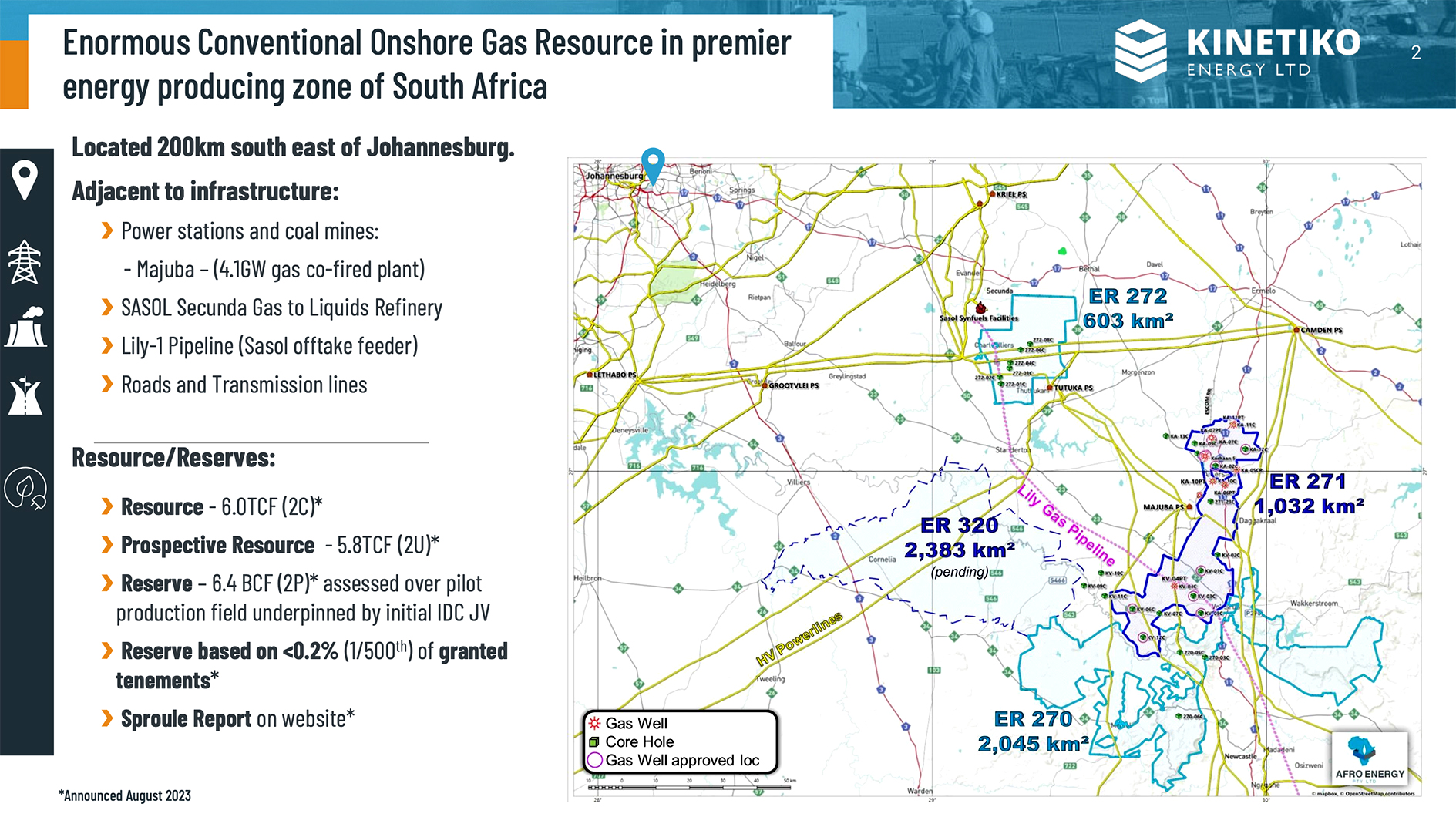
CEO of Kinetiko Energy Nick de Blocq says they have exploration rights in Blocks ER270, ER271 and ER272, while Block ER320 is currently under reapplication for an exploration right. (Image: Supplied by Kinetiko)
De Blocq said they had exploration rights in Blocks ER27o, ER271 and ER272, while Block ER320 was currently under reapplication for an exploration right.
Block ER271 is where the new LNG project will be developed: it is the most advanced of Kinetiko’s gas operations and runs from just north of Amersfoort to just south of Volksrust.
This is also the first block of which Kinetiko has applied for a production right (evolving their initial exploration right into production right), which is anticipated to be in about a year.
When that time comes, De Blocq said he should be able to “pull the trigger” on a starter’s gun and get multiple rigs active in the field at the same time.
The development will expand on a mass scale of drilling; in other words, about 10 rigs in the field, with each one delivering a well a month for years.
“We now have 41 holes in the ground across all three of our current rights areas and so far we have had a 100% strike rate, so we have 41 boreholes, 41 gas strikes, and I’m calling a world record on that unless somebody corrects me.
“We have just spudded our 42nd borehole a couple of kilometres from the Lilly Pipeline in Block ER27,” de Blocq said
Kinetiko recently got a certification from Sproule – an independent consultancy performing geologic and economic evaluation – to confirm that positive economics can be produced from development projects in these areas with exploration rights.
The first joint venture between the IDC and Kinetiko was formed about a year ago to drive Kinetiko’s pilot project near Amersfoort in a 30-well field which will provide gas to Cryoboxes to produce 15,000 tonnes of LNG per annum.
These Cryoboxes freeze the gas, turning it into liquid in order to transport it and supply markets from there.
Further south in the same block, De Blocq said they were planning a much larger production which could end up being multi-hundred well developments (just picture masses of LNG plants producing 60,000 tonnes per annum).
Environmental impact
Environmental justice groups, which have been attempting to keep the development of new oil and gas in South Africa at bay, were disturbed by the gas discovery, the intention of the IDC to develop this onshore LNG project, and plans for further gas developments.
James Reeler, senior climate action specialist with WWF South Africa, said: “Kinetiko’s find of unconventional methane (primarily coal-bed methane) is not insignificant, and despite the fact that such finds are typically of lower economic value due to their high extraction costs, they have evidently satisfied themselves that it is economically viable.
“The question remains as to whether it is socially beneficial.”
Reeler said the role of gas in the just energy transition was consistently overstated by those in the fossil fuel industry and those set to benefit from continued exploitation of the resource – as seen in last week’s conference.
“It is true that most estimates of low carbon power systems see gas filling a minor role in seasonal and dispatchable peaking energy with very high levels of renewable energy penetration – in the near term.
“However, it is entirely feasible for the medium and longer term for energy balancing and seasonal needs to be filled through renewable gas or hydrogen (or rather battery storage,” he said.
Yegeshni Moodley, climate and energy justice campaign manager at groundWork and Friends of the Earth South Africa, said exposing local communities to gas wells endangered the water supply of vast areas across South Africa, as the mechanism to dig wells and pump out gas could contaminate the water supply of entire communities.
“Living in a water-scarce country, under the shadow of acid mine drainage, as well as climate change-induced drought, this has profound impacts on food security and the basic human right to water access,” he said.
De Blocq emphasised that these were “just holes in the ground” with pipelines trenched in the ground, which he said would not stop farming or get in the way of agriculture. Currently, these developments were taking place across farming land, with the farmers receiving cash benefits for allowing the developers access.
With endemic and biodiverse species in or near the development space – such as the Korhaan bird – De Blocq said that the environmental impact was “almost negligible because you are simply putting holes in the ground, you’re not taking up agricultural space… You’re extracting gas from hundreds of metres underground.”
He said they were extracting water, but this “is part of the benefit” as this water went through a treatment process on the surface and, depending on how much it was treated, it could be used for agriculture through irrigation or stock feed, or processed to EPA potable water standards.
De Blocq also said it would be naive to think environmental groups would have nothing to say about the gas developments (oh, and how right he was).
Gabriel Klaasen, intersectional justice activist with African Climate Alliance and Project 90 by 2030, said: “The continued exploration of fossil fuels is not something we should be looking into in South Africa. Not only because it is an unreliable and expensive source of energy, but because it is destructive to the environment and frontline communities’ livelihoods.”
South Africa – and the world – benefited from the high energy yield of fossil fuels in the 19th and 20th centuries, but it could no longer afford to drink from the increasingly poisoned chalice, according to Reeler and other environmental groups.
“Given that there are better, cheaper and cleaner alternatives, it is folly to imagine that doubling down on last century’s problem child can solve the issues it has delivered,” said Reeler. DM









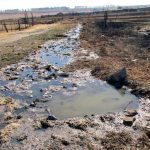











 Become an Insider
Become an Insider
Comments - Please login in order to comment.